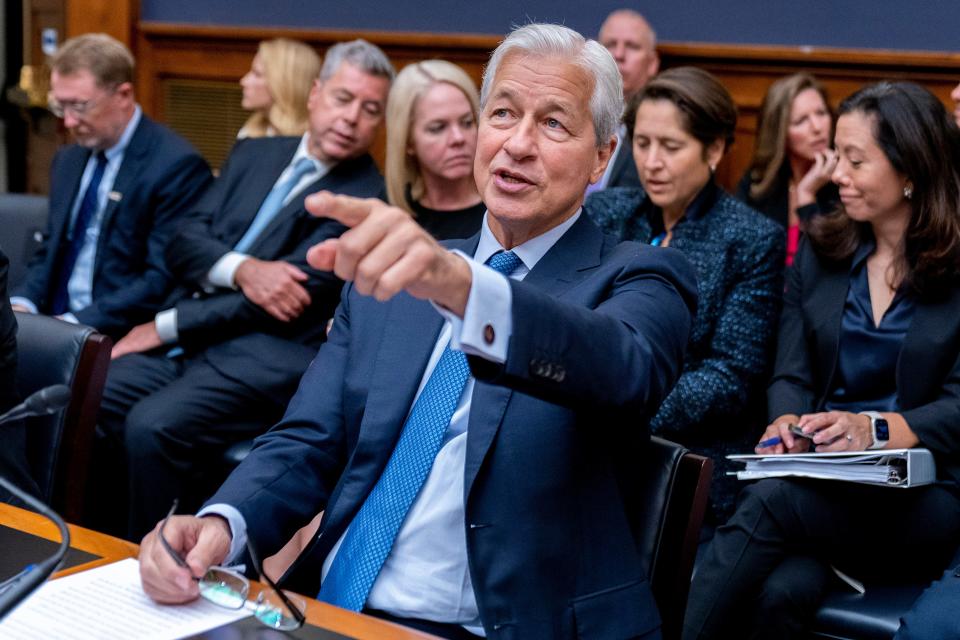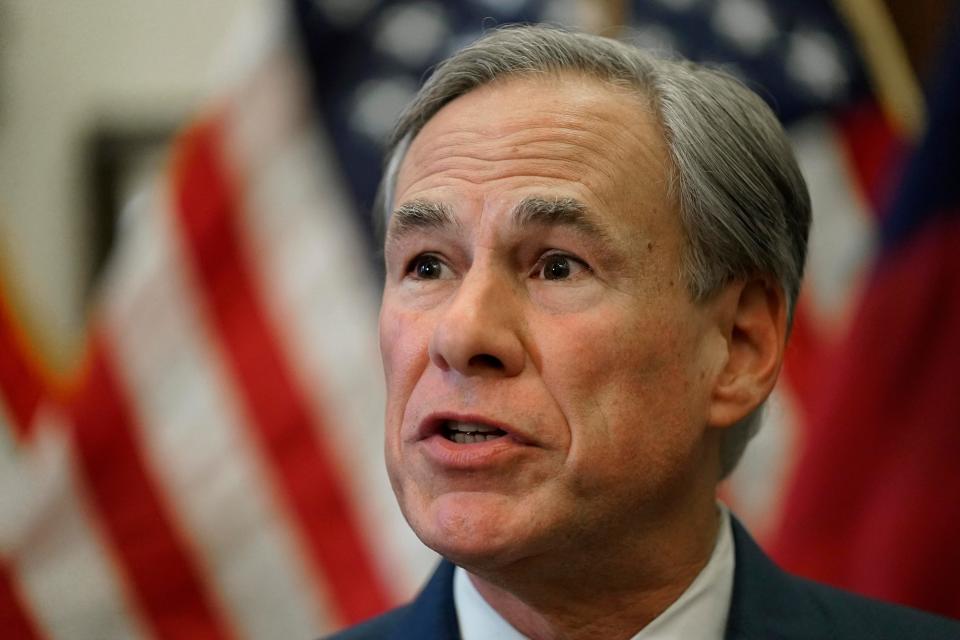Why the head of the largest US bank worries about the future of Texas' business climate
- Oops!Something went wrong.Please try again later.
- Oops!Something went wrong.Please try again later.
AUSTIN — While Gov. Greg Abbott was in Austin accepting congratulations, and doing more than a little bragging, for Texas being named the state with nation's best business climate, the head of the country's largest banks was sending the governor an indirect warning from 220 miles to the north.
The banker's message: Recent laws enacted by the Legislature and signed by Abbott himself could have the unintended consequence of running businesses out of state.
The messenger was Jamie Dimon, chairman and CEO of JP Morgan Chase, who was in the Dallas suburb of Frisco for a small business summit sponsored by the banking giant. In an interview with Bloomberg News, Dimon was just as effusive over Texas' business climate as Abbott was outside the Governor's Mansion when he accepted the honor bestowed on the state by Site Selection magazine.

But Dimon added a catch. Laws passed in 2021 ostensibly to protect the firearms and oil and gas industries might do to Texas' blooming economic rosebushes what a spritz of Roundup does to a weed poking up from a crack in the sidewalk.
He was talking about measures that prohibit government entities in Texas from doing business with organizations that boycott fossil fuel companies or discriminate against gunmakers. The problem is that banks, including the one Dimon runs, are major players in the municipal bond market and many of them have adopted so-called environmental social governance, or ESG, policies reflective of their corporate values.
Some might want to combat climate change, so they lean in the direction of renewable energy. Others might have misgivings about the ready availability of military-style rifles so they steer clear of doing business with the gun industry. And if those banks get out of the municipal bonds business in Texas, cities and schools grappling with the rapid growth spurred by the state's flourishing economy have fewer entities to choose from, which mean less competition, which means less than optimal terms on the bonds they need to pay for more roads, parks and schools.
More: Democrats' strong language is no match for Republican majority on issue of immigration
"We don’t discriminate or boycott anybody, neither for political affiliation nor for anything else,” Dimon told Bloomberg. “We do make risk, legal, credit and reputational decisions, which is our legal right — and my obligation as chairman and CEO of JPMorgan Chase.”
That was a round-about way of saying his bank is in the business of making money, and if a market closes in Texas for whatever reason, it will find one that's open somewhere else.
A report published in January examining the 2021 Texas laws appears to support Dimon's cautionary words to Texas leaders. In their study titled "Gas, Guns, and Governments: Financial Costs of Anti-ESG Policies," University of Pennsylvania professor Daniel Garrett and Federal Reserve economist Ivan Ivanov found local governments in Texas will pay some $300 million to $530 million more in interest on bonds as a result of the new laws.
More: 'Desperate': Dan Patrick, Dade Phelan escalate fight over school choice, border security
Dimon, in his Bloomberg interview, said Texas policymakers need to be mindful of the laws' downstream implications because "their own cities, schools, hospitals all get funding from someone like us, and you want that to continue. So if you can’t do that, it may hurt the ability to raise money in the proper kind of way.”
But he was careful to make clear that Texas is not on the brink of driving its economy off a cliff. For the most part, he said, Texas is a "wonderful, welcoming place" to operate a business. And he should know. In 2020, JP Morgan Chase had 24,500 employees scattered across the state in hundreds of outlets. Today, that figure is closer to 30,000.

And just as Abbott did during his event with Site Selection magazine when he proclaimed Texas as "the land of freedom for entrepreneurs," Dimon said Texas has the right approach when it comes to keeping taxes low, building infrastructure and otherwise keeping entrepreneurs happy.
Implicit in his comments was that job creators of just about every level are happier when government at just about every level allows them to run their operations as they see fit, not in the way politicians in Austin would run them. Because that too factors into the state's friendly business climate.
"I think it’s a mistake to damage it even a little way,” Dimon said.
John C. Moritz covers Texas government and politics for the USA Today Network in Austin. Contact him at jmoritz@gannett.com and follow him on X, formerly called Twitter, @JohnnieMo.
This article originally appeared on Corpus Christi Caller Times: Nation's top banker says Texas laws could harm its business climate

